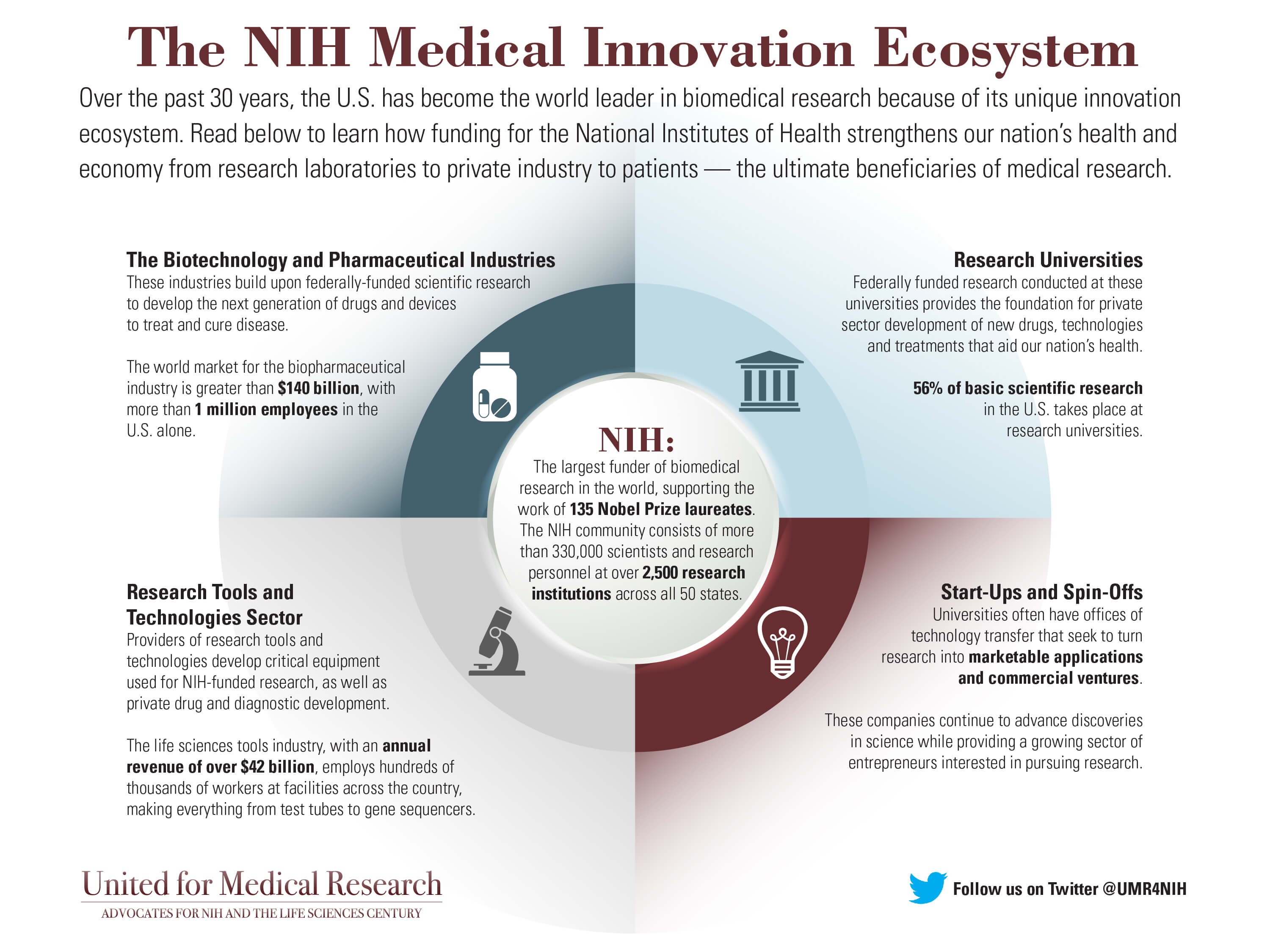Funding cuts in medical research have emerged as a significant concern, especially with the recent halt of over $2 billion in federal grants to institutions like Harvard. These abrupt cuts disrupt vital systems like the SMART IRB, which oversees safety and ethics in studies involving human participants across multiple sites. Without adequate funding, the responsibilities of institutional review boards (IRBs) become increasingly challenging, directly affecting patient safety in research. The National Institutes of Health (NIH) funding impact cannot be understated, as it plays a crucial role in ensuring that medical research adheres to ethical standards. As studies face interruptions and new clinical trials are stalled, the long-standing commitment to protecting vulnerable participants may be jeopardized, raising alarms for the future of medical innovation.
The recent suspension of financial support for biomedical investigations poses grave implications for patient protection and the integrity of clinical studies. Such financial constraints hinder the essential oversight provided by institutional ethics boards and compromise the commitment to medical research ethics. When institutions are pressed by funding shortfalls, the ability to conduct thorough reviews and uphold IRB responsibilities diminishes, casting a shadow over the credibility of ongoing trials. The potential rollback of grants severely limits access to resources crucial for evaluating and monitoring patient safety, raising critical questions about the future of healthcare advancement. As financial barriers multiply, the pathway to discovering new treatments and enhancing medical practices becomes increasingly fraught with uncertainty.
The Consequences of Funding Cuts on Medical Research
Funding cuts in medical research have far-reaching implications, particularly for the integrity and safety of patient care in clinical trials. When financial support is withdrawn, research institutions face not only operational challenges but also disruptions in ongoing studies. The inability to secure grants often means that essential studies are halted midstream, ultimately affecting hundreds, if not thousands, of research participants. This interruption can lead to the abandonment of valuable research outcomes that are vital for public health.
The stop-work order recently issued to Harvard, suspending over $2 billion in federal research grants, underscores the critical relationship between funding and research integrity. It jeopardizes the collaborative efforts between institutions that are essential for monitoring patient safety and ensuring rigorous ethical standards are maintained within various clinical trials. The stakes are high as these funding cuts not only delay the development of new treatment protocols but also contribute to growing public skepticism regarding the efficacy and transparency of medical research.
Understanding the Role of Institutional Review Boards (IRBs)
Institutional Review Boards (IRBs) are fundamental to the ethical oversight of medical research, ensuring that the rights and safety of participants are protected at every stage of a study. These boards are tasked with reviewing research proposals to assess risks posed to participants, determine the merit of the study, and enforce informed consent processes. Their responsibilities extend beyond just evaluation; they are integral in ongoing oversight, monitoring adverse events, and ensuring compliance with federal regulations. Without adequate funding, however, the efficacy of IRBs can be significantly compromised.
With the recent halt in funding, IRBs are likely to face resource constraints that impede their ability to perform these critical functions effectively. This situation raises serious questions about patient safety in research settings and the integrity of the data collected during clinical trials. The potential loss of funding can restrict training and educational opportunities for IRB members, further diminishing the oversight quality and compromising the ethical standards that protect research participants.
The Impact of NIH Funding on Patient Protection
NIH funding plays an indispensable role in promoting patient protection within medical research. Grants from the NIH not only support groundbreaking studies but also facilitate the establishment and maintenance of regulatory processes that safeguard the rights and welfare of individuals participating in clinical trials. These funds allow for thorough reviews by IRBs, ensuring compliance with ethical norms and the robust protection of participants. When NIH funding is cut or frozen, as seen in recent administrative actions, the frameworks designed to shield patients from potential harm can falter.
The reduction of NIH financial support signifies a shift that could undermine years of progress in ensuring patient safety in research settings. Researchers may struggle to obtain the necessary approvals for studies if they lack the resources to adhere to ethical standards prompted by NIH guidelines. This situation creates a ripple effect: not only do patients lose access to potentially life-saving interventions, but the very foundations of trust between research institutions and the communities they serve are placed at risk.
Challenges in Clinical Trials Oversight
The effective oversight of clinical trials is essential for maintaining research integrity and patient safety. The collaboration between multiple sites, facilitated by systems like SMART IRB, ensures that trials can operate under unified ethical standards. However, when funding is cut, this collaborative approach is severely threatened, leading to delays and interruptions in studies. The inability to add new clinical sites impedes innovation and can stifle the development of crucial treatments. Without this cohesive oversight, the potential for patient harm increases, as inconsistencies in ethical reviews can arise across different research sites.
Moreover, the challenges in clinical trials oversight become acute in a landscape of shrinking resources. Research teams find themselves stretched thin, facing increased workloads without adequate support. This limitation can lead to rushed or incomplete evaluations by IRBs, ultimately compromising patient safety and the validity of research findings. The system’s checks and balances weaken under such conditions, which could have devastating consequences not only for individual research projects but for public trust in the entire medical research endeavor.
Ethical Implications of Disruptions in Medical Research
The ethical implications of disruption in medical research, particularly due to funding cuts, cannot be overstated. History has shown that failures in oversight and ethical standards can lead to egregious violations of patient rights, as seen in infamous cases like the Tuskegee Syphilis Study. The erosion of funding jeopardizes the establishment of strong ethical frameworks within which research is conducted. As financial support diminishes, so too does the capacity of researchers and institutions to uphold the rigorous ethical standards that protect vulnerable populations.
This situation sheds light on the broader issue of medical research ethics, highlighting the need for continuous investment in safeguarding human subjects. The voices of patients must be amplified within the research process, ensuring that their rights and well-being are paramount. When funding cuts restrict the capacities of IRBs and ethical committees, the very essence of trust that is needed to engage communities can be eroded, leading to long-lasting repercussions for future research initiatives.
Restoring Public Trust in Medical Research
Restoring public trust in medical research is a monumental task that requires sustained efforts and transparency from research institutions. Recent funding cuts have underscored the fragility of this trust, as communities may perceive the cessation of research activities as negligence toward participant safety. Engaging with community stakeholders, sharing research outcomes, and involving patients in the decision-making processes can help bridge the gap and rebuild confidence in the research enterprise. Institutions must demonstrate their commitment to ethical practices by ensuring that participant safety remains a top priority.
Moreover, institutions need to commit to channeling their resources to enhance patient engagement in research studies. Training initiatives for researchers and IRB members alike can bolster understanding of patient rights and the essential role they play in shaping research trajectories. The re-establishment of trust is not only vital for the success of future studies but is also imperative for fostering collaborative relationships that can drive innovation in medical research.
Engaging Communities in Research Efforts
Engaging communities in research efforts is essential for advancing medical research while safeguarding patient rights. Effective communication strategies and collaborative frameworks can ensure that research is conducted transparently, with input from the very participants who stand to benefit from its outcomes. This collaborative approach strengthens the trust between researchers and communities, helping to mitigate the skepticism and mistrust that often arise from ethical violations in the past.
Community engagement allows researchers to understand better the concerns and values of potential participants, leading to studies that are more aligned with public needs. Initiatives such as patient advisory boards can provide invaluable insights into the ethical considerations that should inform research design, ensuring that patient safety remains at the forefront of all research activities. As funding sources become more constrained, prioritizing community involvement will be key to sustaining ethical standards in medical research.
The Future of Collaborative Research Initiatives
The future of collaborative research initiatives hinges on the ability to adapt to changing funding landscapes while maintaining robust ethical standards. Organizations must explore diverse funding avenues, including public-private partnerships, to sustain and expand collaborative efforts. By pooling resources and expertise, institutions can bolster their capabilities to conduct ethically sound research while navigating the complexities of regulatory oversight. As various institutions work together, the shared commitment to upholding patient safety is crucial in fostering a culture of integrity.
Furthermore, leveraging technological advancements can enhance collaborative research initiatives and streamline the IRB review process. Online platforms can facilitate more efficient communication and documentation among research sites, ensuring compliance while minimizing delays. As we look to the future, building infrastructure that prioritizes ethical research conduct will be indispensable in overcoming the challenges posed by funding cuts and safeguarding the health and rights of study participants.
Navigating Ethical Challenges Amid Funding Cuts
Navigating ethical challenges amid funding cuts requires a proactive approach from researchers and institutional leaders alike. As financial resources dwindle, the potential for ethical oversights increases, underscoring the need for continuous vigilance and strong governance frameworks. Research institutions must prioritize ethical training and capacity building for IRBs, ensuring that they remain equipped to address the complexities of modern medical research. Transparency and accountability should underpin all research activities, fostering an environment where ethical concerns are addressed promptly.
Moreover, in the face of funding cuts, it is vital for researchers to advocate for the importance of ethical oversight and patient safety in their work. Engaging with policymakers and funding agencies can help to raise awareness of the critical link between funding and ethical research practices. By highlighting the implications of cuts on patient welfare and research integrity, researchers can galvanize support for continued investment in the ethical conduct of medical research, ultimately ensuring that the rights of participants are upheld.
Frequently Asked Questions
What are the impacts of funding cuts in medical research on patient safety?
Funding cuts in medical research significantly jeopardize patient safety by disrupting oversight mechanisms like Institutional Review Boards (IRBs), which are crucial for ensuring ethical standards and participant protection in clinical trials. When research programs face funding shortages, the ability to maintain rigorous monitoring and safety protocols decreases, increasing potential risks for participants.
How do NIH funding cuts affect the ethics of medical research?
NIH funding cuts can undermine the ethics of medical research by reducing resources available for IRB oversight and ethical training. With limited funding, research institutions may struggle to uphold ethical standards necessary to protect human participants, leading to ethical compromises that can erode public trust in medical research.
What role does IRB play in safeguarding patient rights amid funding cuts in medical research?
IRBs play a vital role in safeguarding patient rights by reviewing research proposals for ethical compliance and participant safety. Funding cuts in medical research limit the capacity of IRBs to function effectively, which can lead to lapses in oversight and increased risks for participants involved in clinical trials.
How do funding cuts in medical research impact clinical trials oversight?
Funding cuts in medical research severely impact clinical trials oversight by restricting the resources necessary for proper monitoring and review. This can result in delayed studies, insufficient oversight, and heightened risks for participants, ultimately compromising the integrity of the research process.
In what ways does patient safety in research suffer from funding cuts?
Patient safety in research suffers from funding cuts as they lead to reduced oversight capacities of IRBs, fewer resources for ethical compliance, and diminished support for monitoring adverse events. This compromises researchers’ abilities to protect participants effectively and minimize risks associated with studies.
| Key Point | Details |
|---|---|
| Funding Cuts Impact | The Trump administration froze over $2 billion in federal research grants to Harvard, disrupting medical research efforts and patient safety. |
| Role of SMART IRB | SMART IRB facilitates oversight of studies at multiple sites to protect the rights and safety of patients in medical research. |
| Importance of IRBs | Institutional Review Boards (IRBs) ensure compliance and protect research participants by reviewing and approving studies. |
| Public Trust | Medical research relies on public trust; funding cuts risk creating skepticism and mistrust among participants. |
| Historical Lessons | Past medical ethics violations highlight the necessity of IRBs and safety protocols for human research. |
| Consequences of Halts | Halts in funding lead to immediate risks for participants and delays in critical research studies. |
Summary
Funding cuts in medical research have profound implications for the safety and rights of research participants. The recent freeze of federal research grants, particularly the halt of over $2 billion to Harvard, has severely disrupted ongoing medical studies, jeopardizing the oversight provided by essential systems like the SMART IRB. Institutional Review Boards (IRBs) play a critical role in ensuring that research adheres to ethical standards and protects participants. However, as funding cuts continue, the potential for public mistrust in clinical research grows, ultimately threatening the integrity and progress of future medical advancements. Without adequate funding, the health and safety of individuals who volunteer for studies remain at risk, highlighting the urgent need for sustained investment in medical research.



